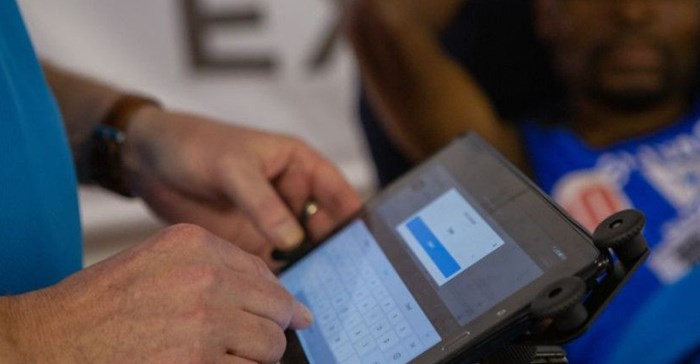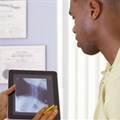
Subscribe & Follow
Jobs
How Mediclinic's Scinapse app is transforming the event medical industry

While there are many tech projects underway to reshape services at clinics and hospitals for greater efficiencies, as well as easier access to care and improved patient outcomes, medical assistance is frequently required in many different settings.
Every year, the Mediclinic corporate events team is deployed to around 13 premier, mass participation, extreme South African sporting events to help protect the health and safety of competitors and spectators.
It’s a highly specialised role that has put Mediclinic at the forefront of digital innovation that can improve medical assistance far out in the field, and in the midst of many thousands of people.
In 2019, Mediclinic Southern Africa’s ICT team piloted the use of the Scinapse mobile tablet app at the Sanlam Cape Town Marathon.
The latest in race medicine technology, Scinapse is used by Mediclinic doctors and nurses to electronically gather, synchronise and share real-time patient data at events which improves patient care by dynamically connecting the medical practitioners, the field hospital, medical-assistance stations, ER24 and nearby hospitals.
Over this past weekend, 21,000 athletes participated in the range of 2022 Sanlam Cape Town Marathon events, and empowered by Scinapse, the Mediclinic team effectively assisted around 300 people with their medical needs during the 42km Sunday marathon.
Emergency medical support overhauled
Prior to this, doctors and nurses stationed at multiple points along a race route created handwritten patient records, and many could attest to the trials of trying to handle paperwork efficiently in windy and rainy weather conditions.
There were also often remote areas along any given race route without 3G reception where the medical team could not share patient data using their mobile devices.
Some patients may have received treatment at one point on the route, continued with the race and then required further treatment or transfer to a hospital at a later point, but there was no way to electronically synthesise this critical data in real-time on one patient record.
Gathering up records from wide ranging points along the race route, and sharing this with the hospital team receiving the patient, took time and manpower, and it was too easy for some data to slip through the cracks or for miscommunications to occur.
These challenges would often result in delays in patient treatment, and compromised patient care.
Minette Barkhuysen, general manager of Core Enterprise Systems, Mediclinic Southern Africa’s ICT team: “We knew that things had to change in the event medical industry, and we began with analysis, planning and testing using the clinical input provided by our corporate events team.
"The ICT team chose to partner with Aux Studio as they had the capabilities to do rapid prototyping and app design with specialised UI/UX features. They also understood the challenges posed by a race route that traverses areas without 3G reception and could enable online/offline capabilities with a Firebase real-time database.
"We worked together to be able to put a portable, lightweight, cordless tablet in the hands of the doctors and nurses so that they could create one real-time, synthesised electronic record per patient along the race route using the Scinapse app, which also generates a referral letter if a patient is transferred to a hospital.
The ongoing evolution of sports medicine
"The Mediclinic ICT team continues to develop the app as more events are supported, and gaps and enhancements emerge.
"Scinapse’s Interoperability with Mediclinic systems is currently being scoped, which is exciting and challenging work for the ICT team.”
Scinapse is setting a precedent at South African sports events by giving the Mediclinic corporate events team extraordinary oversight of an event from a vital medical perspective, which is something that no one has ever had before at South African sports events.
The app’s dashboard provides real-time insights into what is happening at different points and stages during an event, which enables a dynamic assessment of environmental and safety factors that can be addressed to make the event safer and ensures that each point of patient contact is well-supplied.
At a high level, Scinapse enables the team to reduce risk and maximise care at optimal levels, which fits in with the overarching aims of events medicine.
In addition, the collation and analyses of Scinapse data year on year is making a significant contribution to the Mediclinic’s corporate events team’s capacities to professionally plan and prepare for events.
Caroline Murray, Mediclinic’s clinical logistics co-ordinator for events says: “Scinapse data identifies and accurately pinpoints trends along a race route.
"In planning for the next event, Scinapse enables us to make data-based risk assessments and decisions about the best positions for our field hospital, medical-assistance stations and emergency vehicles, as well as to more accurately determine our staffing, equipment and medicinal needs along a race route.
"The Scinapse app is one of Mediclinic’s cutting edge digitalisation projects that is having a measurable impact on improving the patient journey.
"As we unlock the benefits of digital health for our patients and medical practitioners, our ICT team is currently expanding and diversifying in our efforts to meet the demands of our ever-changing, tech-driven world.”
Related
Why South Africa’s top companies advertise on BusinessTech 26 Feb 2025 Is telemedicine revolutionising or complicating healthcare? 17 Feb 2025 Sanlam warns: loan scams on the rise as festive spending ramps up 3 Dec 2024 The martech revolution: Navigating the future of marketing in South Africa 28 Nov 2024 Sanlam's new leader: Shadi Chauke to drive sustainability and growth in Africa 13 Nov 2024 Didn't understand the investment policy fine print? New ruling offers no sympathy 8 Nov 2024









